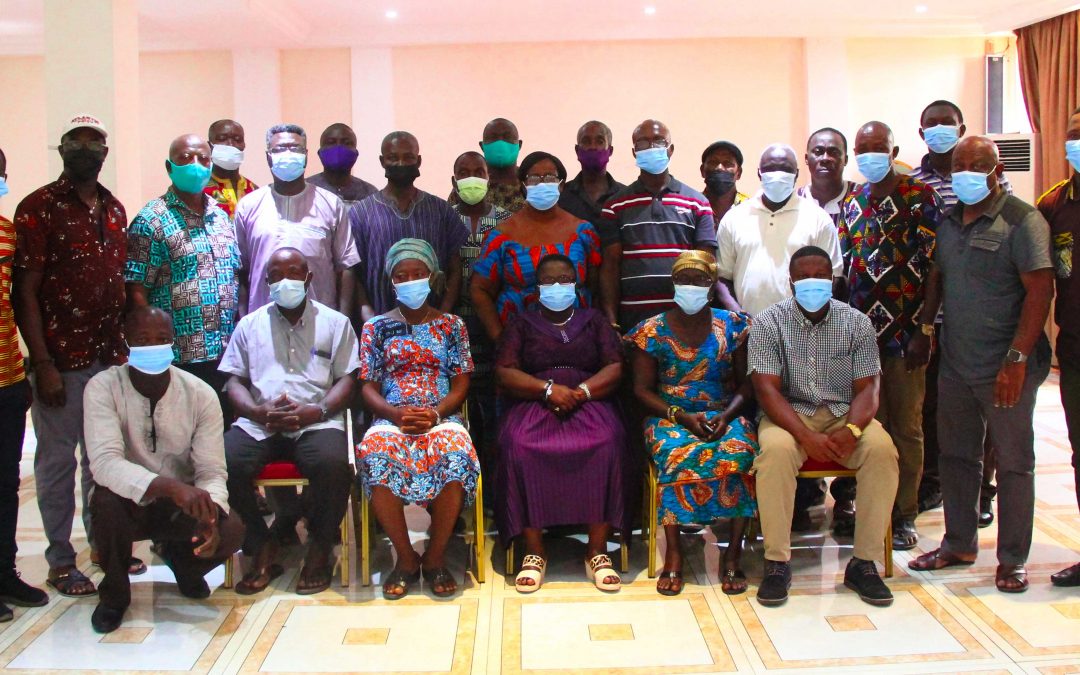As part of efforts in strengthening the leadership and capacity of the Ghana National Canoe Fishermen Council (GNCFC) and the National Fish Processors and Traders Association (NAFPTA), Friends of the Nation has facilitated a 2-day capacity needs assessment workshop for the Executives of these two associations.
The objectives of the workshop were to support these artisanal fishers’ associations in Ghana to self-assess and prioritize needs that requires capacity strengthening as well as create platform for the Executives to dialogue and discuss their role and capacities in Fisheries Co-Management and participatory planning in fisheries governance.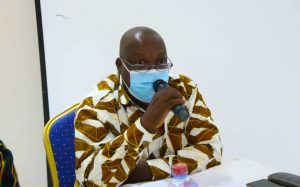
The Executive Director of Friends of the Nation, Mr. Donkris Mevuta, recalled and acknowledged the commitment of the two Associations towards the 2019 Closed Season implementation and the development of the Fisheries Co-Management Policy.
He said, “The Fisheries Co-Management Policy created space for fishers to participate and contribute to fisheries governance. Now we want to know what your capacities are and areas to be strengthened to engage government and other industry players in the governance and management of the fishery resources.
However, he admonished that the council as it is now, seemed as a “Chief Fishermen Council”. “It is about time we ensure transparency and inclusiveness in the Council. NGOs have their roles and fishers’ associations have their roles and whilst complimenting each other, each must play their unique roles,” he stressed.
He concluded that NGOs are agents of positive change. It is good to support government policy as well as criticize constructively with pragmatic suggestions. There is the need to relook at your associations, make it more attractive, offer solidarity, support yourselves and make positive impact in the fisheries sector.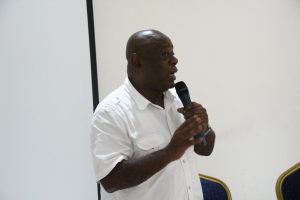
Nana Joojo Solomon, a National Executive Member of GNCFC spoke passionately about the association not being a formidable force to reckon with after so many years in existence. He said, “there is an emerging force, “Canoe Owners Association” and if we do not take care, they will sweep the council away. They are very firm on the ground. We need to act fast and co-opt them into the council.” He challenged all the regional and national executives to work hard by saying, “we know and understand all the illegal unreported unregulated (IUU) fishing practices happening. We need to push ourselves and be a force to reckon with, pursue transparency, change our attitude and make an impact.”
The capacity needs assessment exercise built upon the Organizational Capacity Assessment (OCA) Reports developed for GNCFC and NAFPTA under the erstwhile USAID-Sustainable Fisheries Management Project (SFMP).
In a review of the Action Plan captured in the OCA reports, GNCFC highlighted these key actions;
- Amendment and Final Adoption of Draft Constitution,
- Election of National Executives, Membership and Dues,
- Co-opting Canoe Owners into the executive and membership Council.
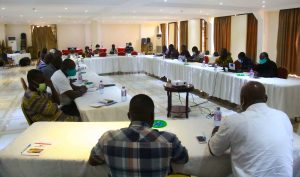
On the other hand, NAFPTA identified these key actions;
- Mobilization of Members at the Community Level
- Election of District and Community level Executives
- Dissemination and Sensitization of the Constitution.
These key identified actions will further be developed by the Associations where the IFG Project will support these Associations (GNCFC and NAFPTA) with small grants to implement the actions thereby strengthening and building their capacities to actively participate in the governance of the fisheries resources, lead advocacy and engagement in fisheries sector.
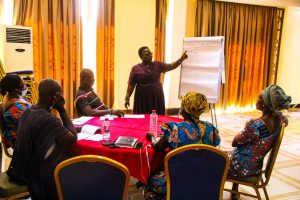 The Improving Fisheries Governance in Ghana and the Wider Sub-region (IFG Project) is a 3- year project funding from Oceans 5 and Oak Foundation being implemented by a consortium of partners – Hen Mpoano, Friends of the Nation (FoN), Environmental Justice Foundation (EJF), Fisheries Committee for the West and Central Gulf of Guinea (FCWC) and Trygg Mat Tracking (TMT). The project aims to Strengthen government and industry commitment to improve fisheries governance in the key policy areas of enhanced transparency, law enforcement, collaborative management, and capacity of key stakeholders in Ghana and the West African region.
The Improving Fisheries Governance in Ghana and the Wider Sub-region (IFG Project) is a 3- year project funding from Oceans 5 and Oak Foundation being implemented by a consortium of partners – Hen Mpoano, Friends of the Nation (FoN), Environmental Justice Foundation (EJF), Fisheries Committee for the West and Central Gulf of Guinea (FCWC) and Trygg Mat Tracking (TMT). The project aims to Strengthen government and industry commitment to improve fisheries governance in the key policy areas of enhanced transparency, law enforcement, collaborative management, and capacity of key stakeholders in Ghana and the West African region.

